Coconut prices drop sharply, many gardeners face difficulties
After months of price fever, coconut prices in the Mekong Delta are now plummeting. This reversal has left many gardeners in dire straits.
Just about half a month ago, farmers could sell a dozen dry coconuts for more than 200,000 VND, but now the price has suddenly dropped sharply, to less than half, and in some places, traders still have not come to buy.
In Vinh Long and Dong Thap , the price of dried coconuts is now only 40,000 - 50,000 VND per dozen, and drinking coconuts are less than 30,000 VND, down about 70% compared to more than a month ago. Coconut gardens are in the harvest season, however, the number of buyers is decreasing, and the selling price is decreasing.
In some areas, many gardeners have to keep the fruit on the trees for a long time, causing a serious decline in quality. This is pushing coconut growers into difficulties, with high care costs and low selling prices, while they have to struggle to maintain their gardens and wait for positive signals from the market.
To ensure prices and output markets, in addition to strictly following production processes and improving quality, experts also recommend that when planting new coconuts, people should choose high-quality coconut varieties that meet the tastes of consumers as well as the export market.

Uneven quality makes it difficult for Vietnamese coconut brands to maintain their reputation in the international market.
Many internal factors cause coconut prices to drop sharply
The market rules that there are ups and downs. However, the sudden drop in coconut prices is showing many abnormalities. Is it just because of the peak season or are there deeper reasons for the rapid decline in coconut prices? Experts say that behind the fluctuations are a series of internal factors of the Vietnamese coconut industry.
With 300 coconut trees, Mr. Thach Sa Phia's family harvests about 2,000 fruits each month. At the peak price, nearly 200,000 VND per dozen, each harvest he can earn about 40 million VND. But now, everything has changed.
Mr. Thach Sa Phia - Phong Thanh Commune, Vinh Long Province said: "Green coconuts in the rainy season are very cheap, about 20,000 - 30,000 VND/dozen. The quantity here is so small that sometimes the supply is not enough, the price is still unstable".
According to experts, the Mekong Delta is entering the peak of the coconut harvest, with output increasing. However, abundant supply is not the main reason for the strong fluctuations in the coconut market. The long-standing shortcomings lie in the fragmented scale of production, unsynchronized cultivation processes, and lack of linkage and standardization of coconut varieties.
Mr. Nguyen Ngoc Trai - Deputy Director of the Mekong Delta Coconut Institute shared: "In the Mekong Delta, each person's coconut growing area is not large, each person has a different cultivation process. Therefore, our output products are not uniform in quality. When the quality is not uniform, when we export, our partners will see the difference in quality in a batch of goods, so purchasing power will decrease."
Uneven quality makes it difficult for the Vietnamese coconut brand to maintain its reputation in the international market. Meanwhile, small output depends on a few main markets such as China, the US, and the EU, making it impossible for our coconut industry to take the initiative in price.
The plunge in coconut prices is not only due to seasonality but also reveals long-standing shortcomings. When the industry’s value chain is still fragile, even a small impact on supply and demand is enough to cause strong market fluctuations.
Increasing competitiveness for the coconut industry
For the Vietnamese coconut value chain to develop sustainably, we cannot rely on individual solutions. The value chain is only strong when each link of the seed chain, production process, and organization linking to the market is operated synchronously. According to experts, the three key groups of solutions that determine the competitiveness of Vietnamese coconuts in the world market are reorganizing production, improving seed quality, and diversifying products to expand the market.
At Van Hung Agricultural Cooperative, more than 300 hectares of organic coconut are produced in a closed process, with guaranteed output. Gathering small producers into a large association helps standardize quality, trace origin, contributing to improving the competitiveness of Vietnamese coconut products in the market.
Mr. Ngo Minh Su - Director of Van Hung Agricultural Cooperative, Vinh Long province said: "We train people every three months so that they know the process of producing organic coconut according to European standards."
Mr. Nguyen Quynh Thien - Vice Chairman of Vinh Long Provincial People's Committee commented: "Building an organic value chain to ensure input, so that products meet the quality requirements of the factory and the consumer market".
Besides the story of improving varieties and standardizing production processes, the key thing now is to explore and expand distribution channels. Deep processing and product diversification to increase competitiveness. That is the core factor for the coconut industry to stand firm in the face of market fluctuations.
Associate Professor Dr. Nguyen Phu Son - School of Economics, Can Tho University commented: "We should diversify our export markets. Because we depend too much on a few markets, when there are big fluctuations, it is very difficult. We need to develop the domestic market, through developing value-added products. These products can be consumed in the domestic market or exported abroad."
Vietnam’s coconut industry is facing fierce competition with other countries in the region. To gain an advantage on the global stage, localities must change, plan, restructure production, improve the quality of varieties, expand the market in a sustainable way, so that Vietnamese coconuts can position their brand and have a solid position on the world agricultural map.
Source: https://vtv.vn/tang-tinh-canh-tranh-cho-nganh-dua-10025111609410347.htm




![[Photo] General Secretary To Lam receives Vice President of Luxshare-ICT Group (China)](https://vphoto.vietnam.vn/thumb/1200x675/vietnam/resource/IMAGE/2025/11/15/1763211137119_a1-bnd-7809-8939-jpg.webp)

![[Photo] Prime Minister Pham Minh Chinh meets with representatives of outstanding teachers](https://vphoto.vietnam.vn/thumb/1200x675/vietnam/resource/IMAGE/2025/11/15/1763215934276_dsc-0578-jpg.webp)










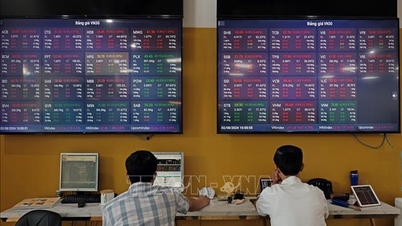




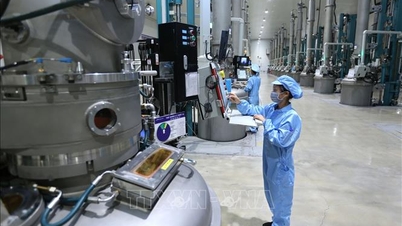












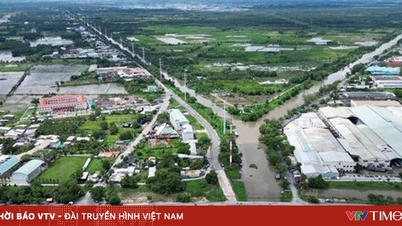



















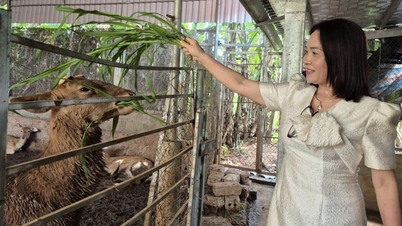

































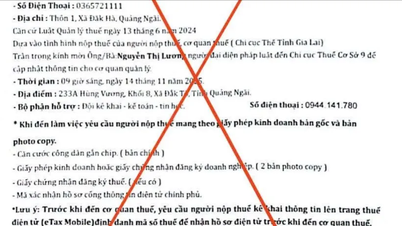





















Comment (0)